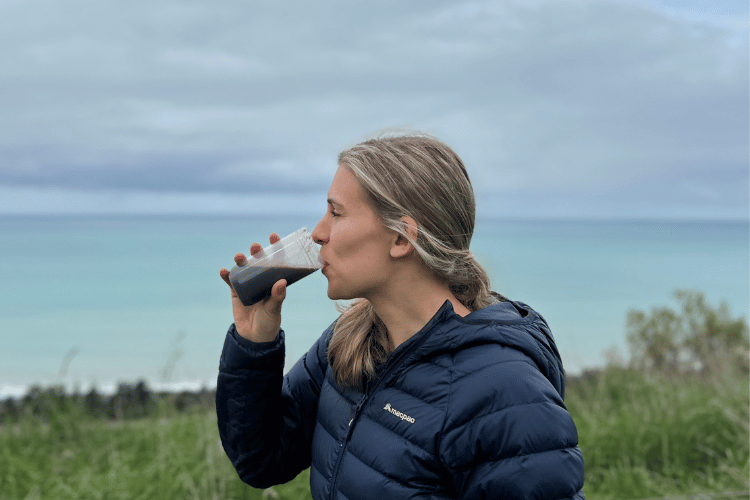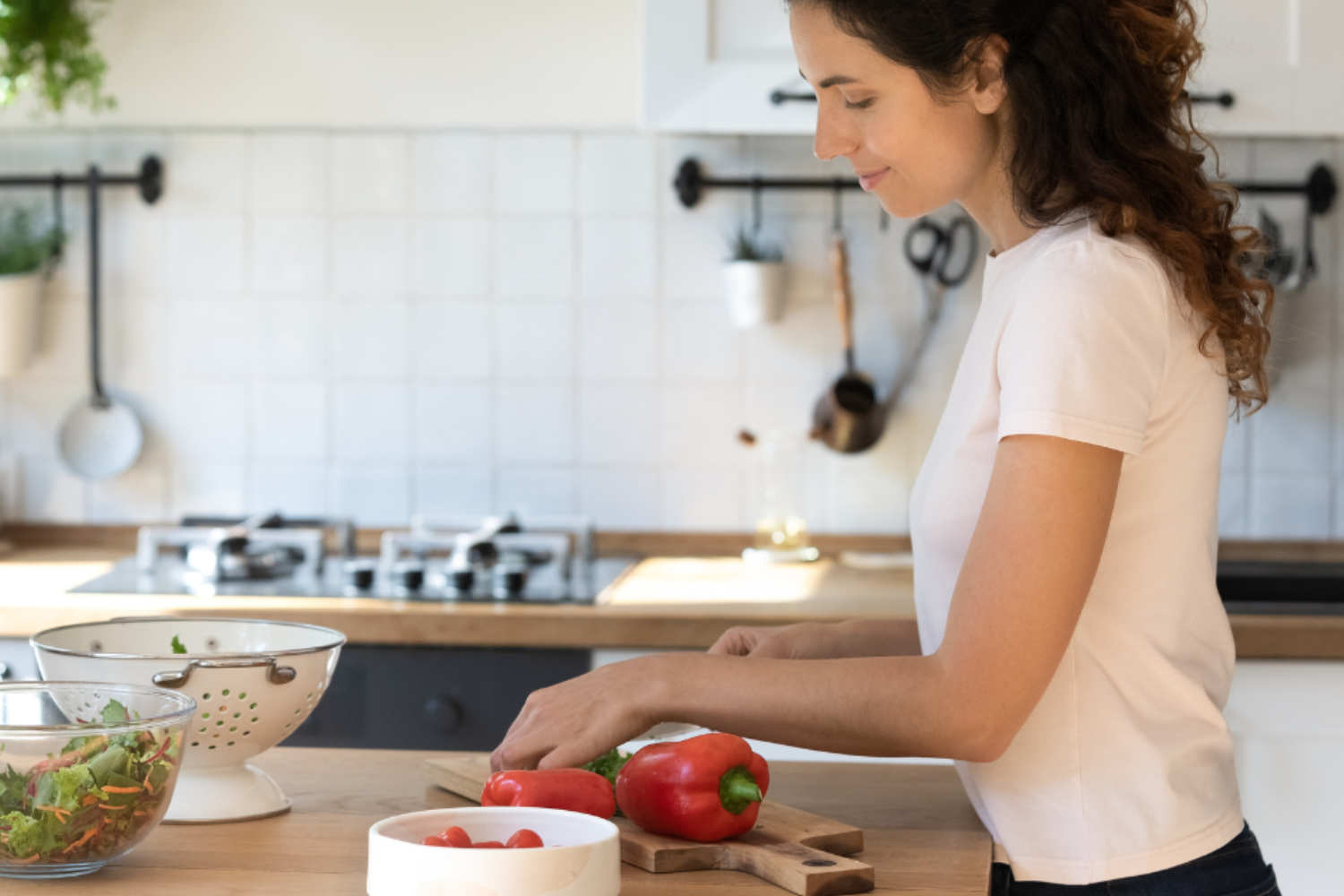Getting enough sleep is vital. In fact, when it comes to health, sleep is as vital as regular exercise and eating a balanced diet.
A poor night sleep is something many of us have experienced. It can leave us feeling tired and frazzled.
Not getting enough sleep can also weaken your immune system, cause cognition (thinking) issues, lower your sex drive, and lead to weight gain.
But fear not, you’re not doomed to toss and turn every night. There are some simple tips for better sleep that you can implement straight away.
Nutrition
It’s no secret that both nutrition and sleep play a fundamental role in our lives, but the complex and important relationships between them are often overlooked.
Diet and nutrition can affect the quality of your sleep, and certain foods and drinks can make it easier or harder to get the sleep you need. At the same time, getting enough sleep is associated with maintaining and healthier body weight. You heard right – sleep well and you could lose weight!
Generally, eating a balanced diet made up largely of fruits and vegetables ensures you get enough of the daily recommend vitamins and nutrients which contribute to good sleep.
Foods to avoid:
- High carbohydrate meals with a high glycaemic index can affect your energy levels as well as sleep. While high-carbohydrate meals can make you feel drowsy, they can also impair your sleep quality by increasing the number of awakenings at night and reducing the amount of deep sleep.
- Sugar-sweetened and energy drinks – there’s no surprise here!
- Fatty or high-protein foods - Digestion naturally slows down when you sleep, so eating a big steak dinner before bedtime can affect sleep if you feel uncomfortably full.
- Spicy food – some spicy foods can raise body temperatures forcing your body to work harder to cool down enough to fall asleep. Spicy foods can also cause heartburn when lying down.
- Caffeine – avoid drinking that cup of coffee too late in the day, as it’s a stimulant designed to keep you alert. Be mindful that caffeine is present in other foods such as chocolate.
- Alcohol – need we say more.
Eat more of these foods:
- Complex carbohydrates such as oatmeal or whole wheat toast which digest easily.
- High-fibre foods such as fruits and vegetables, whole grains and low-fat proteins
- Foods high in vitamin B, as B vitamins are believed to help regulate melatonin such as fish, lean poultry and meat, legumes, eggs and dairy.
- Foods high in potassium and magnesium such as beans, lentils, spinach, broccoli, avocado, bananas, cashews, almonds, dark chocolate, yogurt.
- Take your Shots – Nutrient Rescue’s Double Shot is a whole food, which means you’re getting the equivalent of 4 serves of fruits and veg in a single shot. Because the plants are harvested, dried and powdered you’re getting all the benefit of the whole food such as it’s vitamins, minerals, nutrients and fibre.
Don’t go to bed hungry or overstuffed. In particular, avoid heavy meals within a couple hours of bedtime.
Stick to a sleep schedule
The recommended amount of sleep for a healthy adult is at least seven hours. Each of us is different though so pay attention to what your body tells you it needs.
Go to bed and get up at the same time every day. Try to limit the difference in your sleep schedule on weeknights and weekends to no more than 1 hour. Being consistent reinforces your body’s sleep-wake cycle.
A late sleep schedule also correlates to a higher risk of weight gain! If ever there was a reason to go to bed at a decent time that would be it!
Bedtime routine
If you’re a mum you’ll understand the importance of a sleep routine for little ones. It’s no different for adults. Whether that’s taking a bath, followed by reading and then light’s out, a bedtime routine cues your body and helps you to unwind and relax in preparation for sleep.
If you’re wondering about what the best bedtime routines include, then have a read of this article from The Sleep Foundation on creating bedtime routine for adults.
Improve your bedroom environment
Create a room that’s ideal for sleeping. Generally, this means cool, dark, and quiet. If your room is light, consider investing in block-out curtains or use an eye mask. If it’s hot turn on the air-con or a fan. The ideal room temperature for comfortable sleep is between 15 and 19 degrees Celsius. Minimise external noise as much as possible. Make sure your bedroom is a relaxing, quiet, clean and enjoyable space you that you love being in.
Comfortable bed, mattress and pillow
The quality of your bed can affect your sleep. Back pain, shoulder pain and back stiffness from an old or uncomfortable mattress is something many of us have experienced. It’s recommended you upgrade your mattress every 8 years. Comfortable, soft bedding can also enhance sleep.
Limit screen time
Night-time light exposure has the opposite effect. The light tricks your brain into thinking it’s still daytime, which reduces hormones like melatonin which helps you relax and sleep.
Blue light, which is what devices like smartphones and computers emit in large amounts is the worst.
We recommend putting devices aside an hour before bedtime. If this isn’t practical for you then consider installing an app that blocks blue light on your smartphone – these are available foe iPhones and Android models. Reduce bright lights 2 hours before heading off to bed.
Daylight exposure
Your body has a natural time-keeping clock known as your circadian rhythm. Natural sunlight or bright light during the day helps to keep your circadian rhythm healthy. A study in older adults found that 2 hours of bright light exposure during the day increased the amount of sleep by 2 hours and sleep efficiency by 80%.
Exercise regularly
This is one of the best science-backed ways to improve sleep and health. One study in older adults found that exercise nearly halved the amount of time it took to fall asleep and provided more than 41 minutes of sleep at night.
While exercise is great, just avoid doing it too late in the day.
Reduce daytime naps
While short power naps can be beneficial, long napping during the day can negatively affect your sleep because it confuses your internal clock. Try limit daytime napping to 30 minutes.
Lavender
A powerful herb long associated with promoting sleep. There are ingestible forms of lavender, but often simply adding some essential oil on a tissue placed under your pillow can help you drift off to sleep.
Rule out a sleep disorder
Luckily for most of us poor sleep is something that is transitory. However, there are instances where an underlying health issue may be the cause of your sleep problems. If you’ve always struggled with sleep, then it may be wise to consult your healthcare provider.
Happy sleeping!














